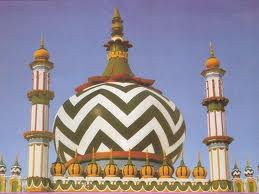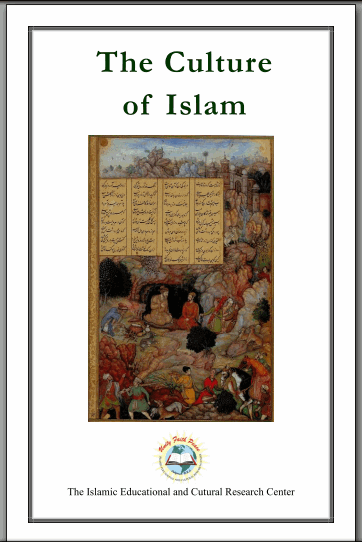Category Archives: Poetry
Ahmed Raza Khan (ra) – The 20th Century Reviver of the Faith
|
The Reviver (Mujaddid) of the 14th Century AlaHadrat Imam Ahmad Rida Khan Alaihir raHmah
He restored the deen to its original state in India when falsehood was being mixed with the truth and people were confused about Sunni beliefs and practices. Such a person is known as a “Mujaddidâ€. Hadrat Umar (may Allah be pleased with him) narrates the Messenger of Allah (peace and blessings upon him) said:
Hadrat Abu Hurayrah (may Allah be pleased with him) narrates the Noble Prophet (upon him peace and blessings) said:
|
He wrote his first ever fatwa on 14th Sha’ban 1286h on an issue of fostering (when he was only 13 years, 10 months and 4 days old!)
Imam Ahmed Rida took his spiritual pledge (bay’ah/ahd) and received khilafah in various Sufi pathways from his spiritual teacher , Sayyid Shah Aal-e-Rasul Ahmadi from Marehrah, India, in 1296H.
Travels to Hajj
First Hajj:Â In 1295h (1878 CE), at the age of 22, the great Imam traveled to perform Hajj with his father where he received Ijazahs (licenses to teach) in the traditional sciences from the great scholars of Makkah such as Sayyid Ahmad Zayni Dahlan and Mufti Abdullah bin Abd ar-Rahman Siraaj.
Event: It is narrated that Imam Ahmed Rida was near Maqam Ibrahim after Maghrib salah one evening that the Shafi’I Imam of Masjid al-Haraam Shaykh Salih Jamal al-Layl Makki (d.1320h/1884) greeted him and said: “I swear by Allah, I can see the light of Allah shine in your foreheadâ€Â and presented Ijazahs to him.
Second Hajj:Â In 1323h (1906 CE), Imam Ahmed Rida travelled to the Two Holy sanctuaries for the second time in company of his brother, Mawlana Hassan Raza Khan and son, Mawlana Hamid Raza Khan.
Event: He wrote a book called “Al-Dawlah al-Makkiyyah†in Arabic in this journey in just over eight hours without using any books on a question proposed to him by the Sharif of Makkah on the Noble Prophet ‘s (may Allah give him peace and blessings) knowledge of the unseen (ilm al-gayb). This work received a tremendous acceptance in its recital gathering in the presence of the Sharif which was attended by the prominent scholars of the time.
In the same journey, he had numerous meetings of knowledge and circles with the great Ulama who were either teaching, living or traveling in Hijaz. He produced a number of books in Arabic due to these sittings and circles …
Quaid-i-Azam’s message on Iqbal Day
To the cherished memory of our National Poet Iqbal, I pay my homage on this day, which is being celebrated in commemoration of that great poet, sage, philosopher and thinker, and I pray to God Almighty that his soul may rest in eternal peace. Amen!Though he is not amongst us, his verse, immortal as it is, is always there to guide us and to inspire us. His poetry, besides being beautiful in form and sweet in language, presents to us a picture of the mind and heart of this great poet, and we find how deeply he was devoted to the teachings of Islam. He was a true and faithful follower of the Holy Prophet (peace be upon him), a Muslim first and a Muslim last. He was the interpreter and voice of Islam.Iqbal was not merely a preacher and philosopher. He stood for courage and action, perseverance and self-reliance, and above all faith in God and devotion to Islam. In his person were combined the idealism of the poet and the realism of the man who takes a practical view of things. Faith in God and unceasing and untiring action is the essence of his message. And in this he emerges truly Islam. He had an unflinching faith in Islamic principles, and success in life meant to him the realization of one’s “self”, and to achieve this end the only means was to follow the teachings of Islam. His message to himanity is action and realization of one’s self.Although a great poet and philosopher he was no less a practical politician. With his firm conviction and faith in the ideals of Islam, he was one of the few who originally thought over the feasibility of carving out of India such an Islamic state in the North-West and North-East Zones which are historical homelands of Muslims.I wholeheartedly associate myself with the celebrations of this “Iqbal Day”, and pray that we may live up to the ideals preached by our National Poet so that we may be able to achieve and give a practical shape to these ideals in our sovereign state of Pakistan when established.

















